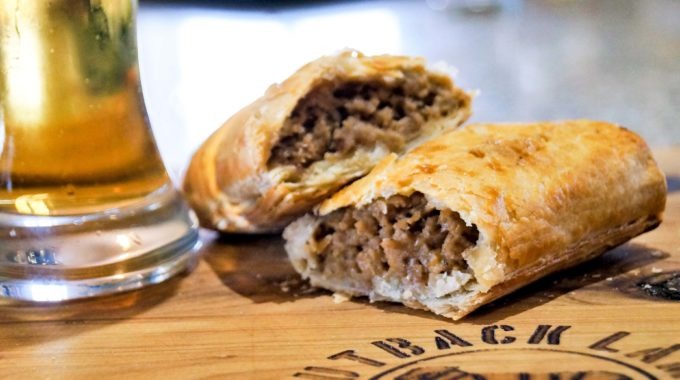Outback Lamb: on a roll in a new direction
Fifth-generation farmer Fiona Aveyard believes the survival of our agricultural communities lies in diversification. And she’s found a delicious way to prove it with Outback Lamb.
Our regional and rural farming communities are at the centre of our cultural identity, and play an essential role in our nation’s economy. We also rely on our farmers to supply our daily bread. According to the National Farmers Federation, Australian farmers produce almost 93 percent of Australia’s daily domestic food supply.
It’s clear we need our farmers, but our farmers are struggling. Drought, climate change, fluctuating commodity prices and being at the mercy of major supermarket chains are all taking their toll. Many small regional communities are shrinking, and many farming families are feeling the pinch, forced to expand or perish as the push for productivity takes precedence over animal welfare and the health of the land.
But things are beginning to change, and many Aussie farmers are now trying to move away from industrial-scale food production, instead exploring other ways to build a viable family farming business that can be passed on to the next generation.
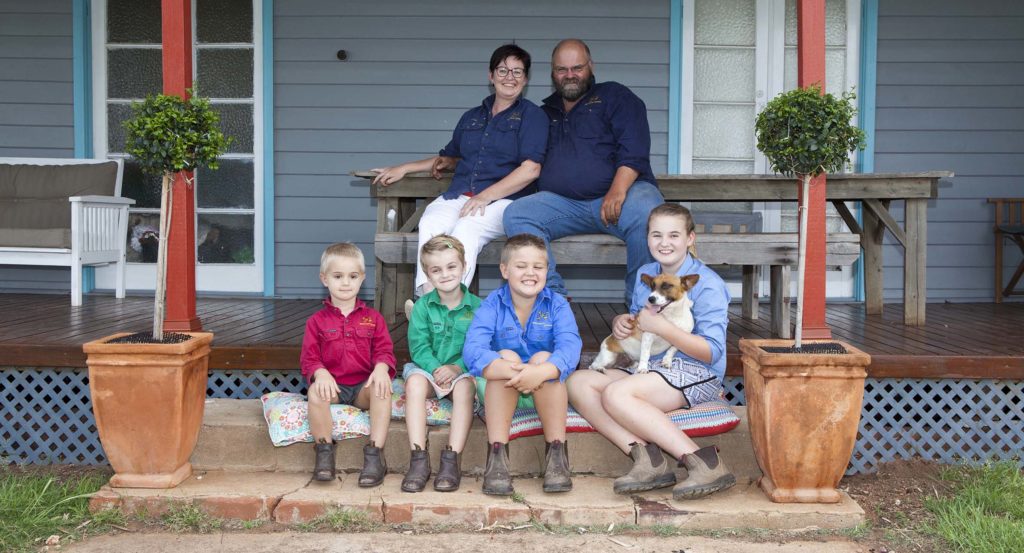
Climbing the value chain
Fiona Aveyard and her husband Bill are fifth-generation farmers from Tullamore in central-western NSW. The couple were running a traditional livestock enterprise when a discussion over succession planning got them thinking about what the future holds for Aussie farming.
“We were wondering what the kids might do and what farming might look like in the next decade,” Fiona says. “Because I really feel like farming is changing, and changing rapidly.”
The Aveyards had been buying up properties around them, as many farmers now feel the need to do. To stay viable, you need to keep expanding and boosting production.
“But it’s not much fun to be so focused on pushing everything – the animals, the land – to its limits all the time, in an attempt to be commercially viable,” Fiona says. “We thought, if we didn’t want to increase productivity, we can stay viable by going up the value chain.”
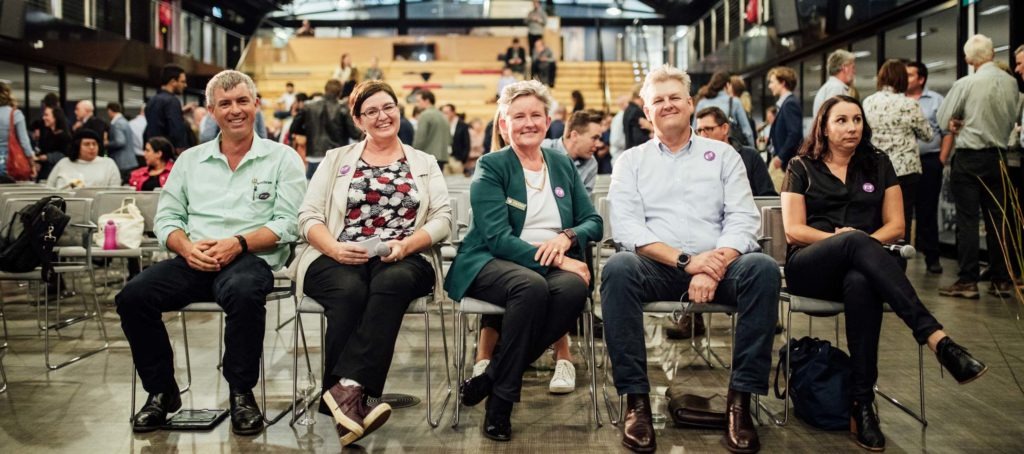
Let’s roll
The family created Outback Lamb and began selling direct to local butchers. A Dubbo Council-run business course then led the couple to collaborate with several other local producers. They won funding to buy a refrigerated truck to take their produce to metropolitan markets. But when the council approached the Aveyards about running a stall to showcase their produce at a local beer festival, Fiona hit upon another idea.
“We’ve always been a bit more about whole animal consumption,” she says. “But you can’t sell hundreds of lamb cutlets at a beer festival. So we decided to slaughter a couple of sheep, get the butcher to fix it up, and make some lamb sausage rolls.”
The gourmet sausage rolls were a hit. Fiona soon began selling them at other events, as well as at the bakery that makes them in Condobolin. She now has plans to expand.
“We’d like to get into the supermarkets,” she says. “We’ve done the packaging design, we’ve done a lot of product testing and everything. I’m at the point now where I have to invest the money in packaging equipment and machinery. Then we can start dropping off samples. We’ve been talking to a few people and I think we could definitely give it a go.”
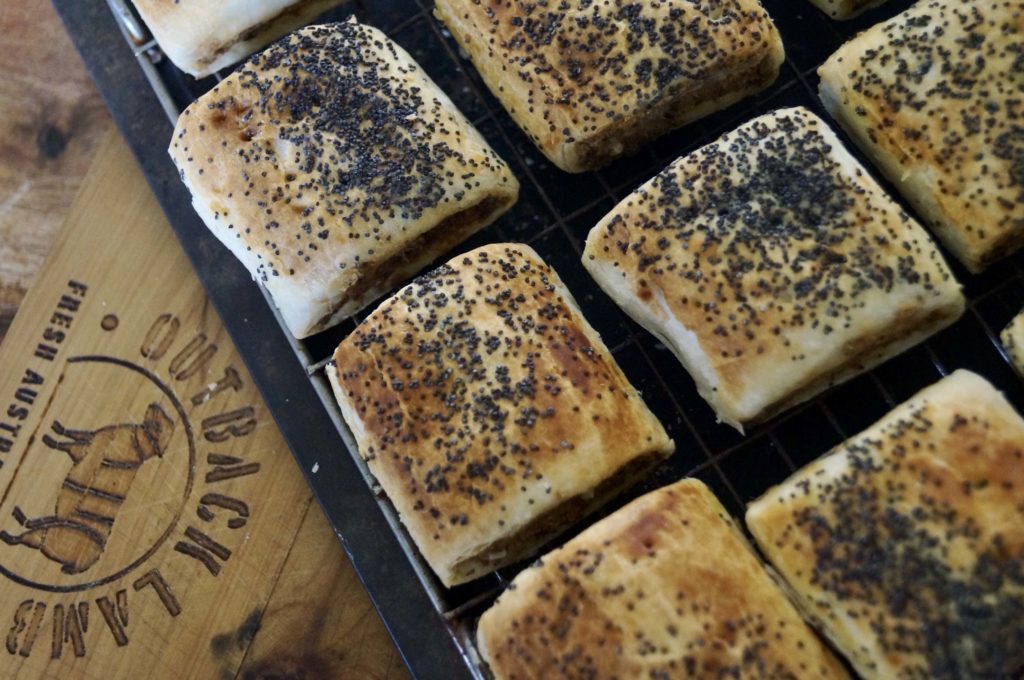
Loving it local
Coming off the back of four years of drought as well as the disruptions of COVID-19, the Aveyards are not yet at the stage where they feel ready for big investments. So for now, Fiona will continue to bake her delicious lamb sausage rolls and pies for local events.
“We’re sitting tight for a bit,” she says. “We’re talking to different people and trying to find out what would be best for the volume that we want to do.”
A key part of Fiona’s plan is keeping business operations local. This will help support the regional community that she’s so very proud of.
“It’s about developing business in regional Australia,” she says. “We just love where we live. But we need to develop our own industries that aren’t just based around agriculture.
“So we get things done locally. It’s not all about us making money; it’s about sharing. Creating jobs in a community that desperately needs jobs and showcasing the area.”
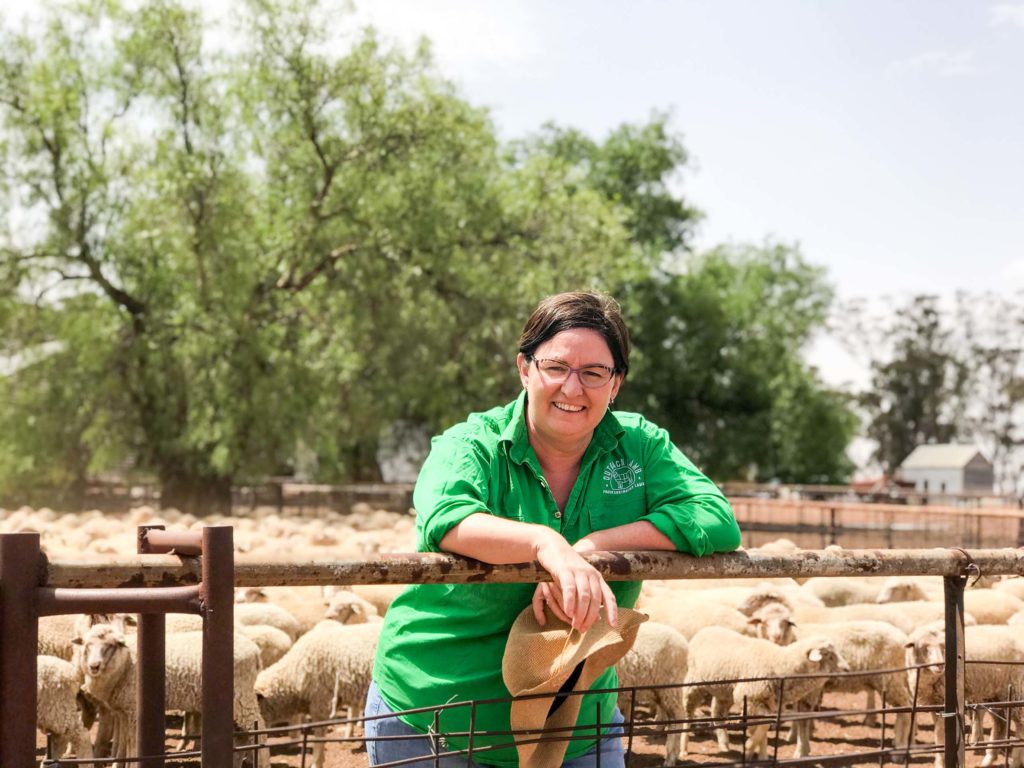
Letting the regions shine
Fiona believes that Australian agriculture is on the cusp of some big decisions. Traditionally, Australian agriculture has followed in the footsteps of the US. However, Fiona says this is not necessarily the kind of future that our farmers want to see.
“We really don’t want to see an Australia where there are massive big feedlots and massive abattoirs. Sure, economically it might make sense. But with COVID, we see how easily these supply chains can break down.”
Fiona believes the way forward for our farming communities is to encourage and foster the development of value-added local businesses that showcase the best of each region.
“I think that that’s what we should be pushing for,” she says. “Rather than trying to develop massive agricultural corporate entities, we should look at what else farmers have to offer.
“Two main problems facing our planet are food safety and food security, and then there’s climate change. Farmers can have an influence on these outcomes. Now is the time for us to speak up and use our voice – to define what kind of farmers we want to be and to think about the impact our decisions will have 20 or 30 years down the track.”
You can find out more about the Aveyards and their produce at outbacklamb.com.au


